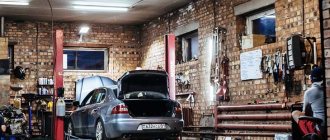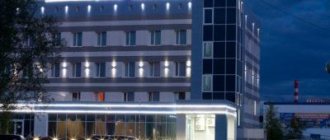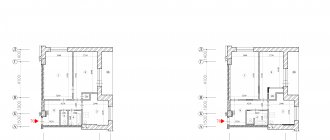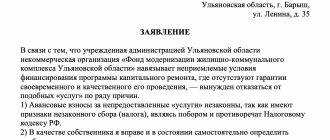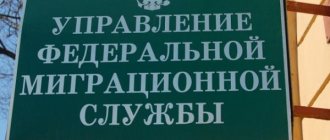Letter of the law
What are the requirements for housing to live in? The main act regulating housing legal relations is the Housing Code of the Russian Federation.
The requirements for housing are enshrined in Article 15 of the Housing Code of the Russian Federation. This list is exhaustive. The absence of at least one requirement makes it impossible to classify the premises as residential. So, the living space must be:
- isolated;
- classified as real estate;
- suitable for permanent residence.
Prefabricated small houses, carriages, and cabins are not considered residential premises.
Also, legal relations concerning housing in non-residential premises are regulated by the Federal Law of the Russian Federation “On the sanitary and epidemiological welfare of the population.” Paragraph 2 of Article 23 of this law establishes a ban on occupancy of non-residential premises .
Legal requirements for real estate for residence
For the most part, the requirements for residential real estate boil down to determining their compliance with certain sanitary (SanPiN) and hygienic standards.
According to SanPiN and the list of hygiene requirements:
- The residential premises are always located only in the residential zone of the settlement. You cannot assign residential status to a room located in a building near life-threatening areas: contaminated areas, landfills, places with high background radiation.
- The area surrounding the building must be landscaped or suitable for improvement. In particular, it is mandatory to have a well-rolled driveway to the main entrance and the place where garbage containers are installed.
- Mandatory requirements include the presence of all communications necessary for a comfortable life: water, electricity, sewerage, and in some areas - gasification.
- Officially, the attic or basement floors of buildings cannot be considered residential. Therefore, if the janitors' or storerooms are populated by illegal migrants, you should contact the police with a request to solve the problem. It is not legal to live in such places.
- It is prohibited to install machines and automatic machines in residential buildings, the operation of which can negatively affect the well-being of residents. For this reason, it will not be possible to legally settle in a factory, plant, or office center.
- No less natural daylight comes through the windows than is specified in the regional SanPiN.
Is it possible to live there?
If you follow exactly the letter of the law (Article 23 of the Federal Law of the Russian Federation “On the sanitary and epidemiological welfare of the population”), then you cannot live in non-residential premises. This contradicts their main feature.
At the same time, if the owner of this premises is there around the clock, then no one has the right to kick him out.
The situation is different with rented property. In this case, problems may arise between the tenant and the owner of the rented real estate . Often the lease agreement contains a clause regarding the intended use of these premises, i.e. if the agreement states that the buildings are rented out as a cafe, then the tenant does not have the right to set up a mini-hotel there.
This will entail, at a minimum, termination of the contract, and, at a maximum, liability in accordance with the agreement and current legislation.
What happens if you run a prohibited business at home?
Neighbors usually write complaints about business in an apartment. And here an entrepreneur can be pecked by several government agencies at once.
The Housing Inspectorate fines for using apartments not for housing under Art. 7.21. Code of Administrative Offenses of the Russian Federation. Fines for citizens from 1000 to 1500 rubles, for individual entrepreneurs and legal entities - from 20,000 to 30,000 rubles. But if you're lucky, the inspectors will limit themselves to a warning.
Rospotrebnadzor fines for violation of sanitary regulations in an apartment building under Art. 6.4 Code of Administrative Offenses of the Russian Federation. For individuals, the fine is from 500 to 1000 rubles. For individual entrepreneurs - from 1000 to 2000 rubles or suspension of activities for up to three months. For legal entities - from 10,000 to 20,000 rubles or suspension of activities for up to three months.
The Ministry of Emergency Situations will fine for violating fire safety rules under Art. 20.4 Code of Administrative Offenses of the Russian Federation. Individuals face from 2000 to 3000 ₽, individual entrepreneurs - from 20,000 to 30,000 ₽, legal entities - from 150,000 to 200,000 ₽.
And most importantly, neighbors or the prosecutor’s office can, through the court, prohibit conducting business activities in the apartment.


